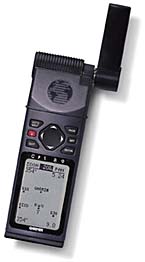

Important Information for GPS Users
|
June 4, 1999, The US Department of Transportation reports users of the Global Positioning System (GPS) should be aware of two important dates: Aug. 22, 1999, the "End-of-Week" (EOW) rollover; and Jan. 1, 2000 (Y2K). The Department of Defense (DOD) says the date changes are unlikely to affect the operation of GPS satellites or DOD's ground control center. But GPS receivers that consumers use may be affected by the date change. That can have important safety implications. Consumers who depend on GPS for geographic locations at sea, on land or in the air, may experience one of the following problems with their receiver:
|
 |
What is GPS? GPS is a satellite-based system that allows consumers who use electronic receivers to determine their location. Recreational boaters and pilots, hikers, campers, hunters, and fishermen are among the consumers who rely on GPS receivers. The military and businesses also use GPS.
End-of-the-Week Rollover and Y2K The GPS EOW rollover occurs every 1,024 weeks -- about once every 20 years. The GPS system calculates time by counting the number of weeks since Jan. 6, 1980 -- up to a maximum of 1,023 weeks. At midnight between Aug. 21-22, 1999, the GPS week "counter" will roll back to zero weeks. DOD says this will not create problems for the GPS satellites or DOD's GPS ground control center, but it could present a problem for consumers who use older GPS receivers and related applications. That's because after Aug. 21, 1999, receivers could process satellite data incorrectly and display inaccurate information. As for the Year 2000 date change, DOD has determined that the GPS satellites and its ground control center will operate properly after Dec. 31, 1999. But if consumer GPS receivers and applications are not Y2K-ready, they could process satellite data incorrectly.
What Should You Do? If you use GPS, check with your receiver manufacturer to find out if your receiver and applications are EOW rollover- and Y2K-compliant. You may want to check the Coast Guard Navigation Center's web site where the Department of Transportation has posted a list of receiver manufacturers and contacts. You also can call the free Y2K consumer hotline (1-888-USA-4-Y2K) for manufacturer contact information. You will need to tell the manufacturer your receiver's model, serial number, and the firmware version or release date displayed on the startup screen. June 4, 1999 DOT 80-99
| ŠAvStop Online Magazine Contact Us Return To News |